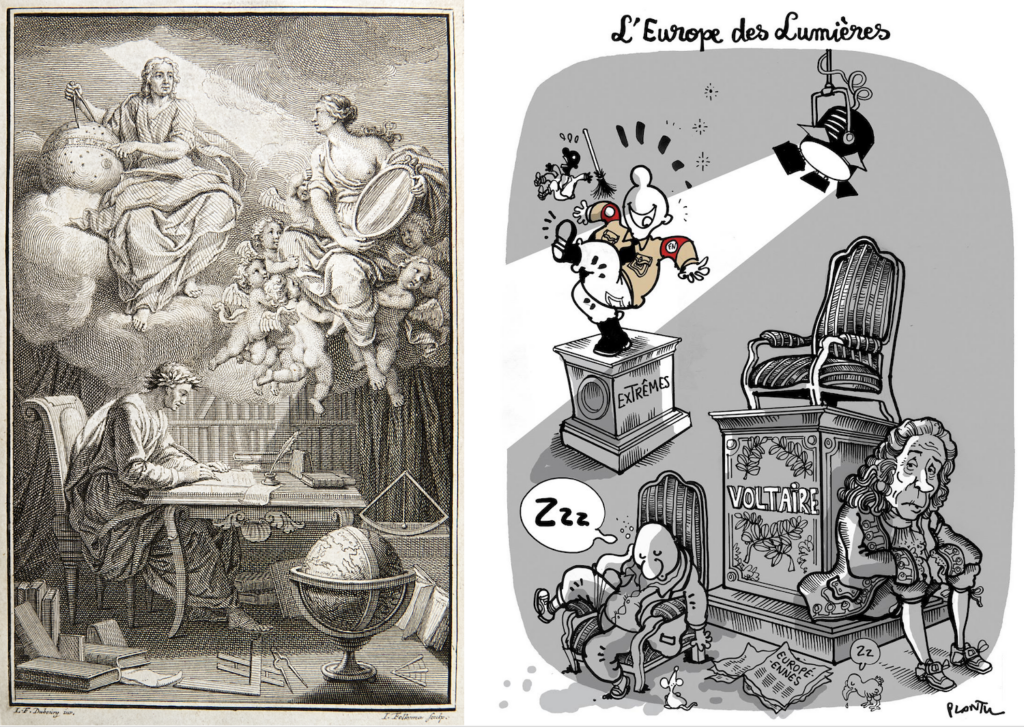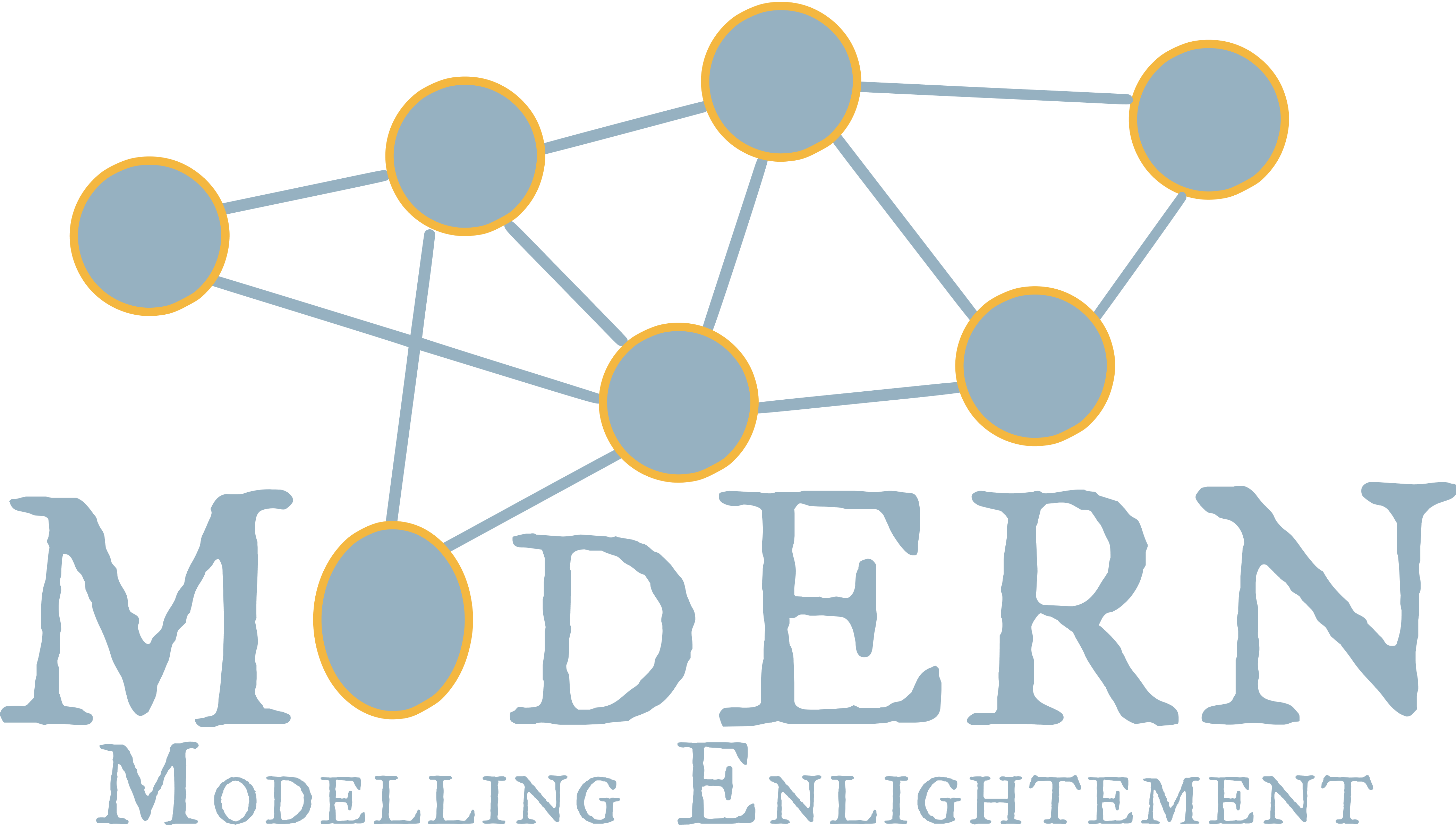About
ModERN (ERC Consolidator Grant 101043369)
Modelling Enlightenment: Reassembling Networks of Modernity through data-driven research
The Age of Enlightenment was a crucial moment in our shared cultural and intellectual history, not just in Europe, but the world over. At its most basic level, the Enlightenment was a set of shared philosophical ideas, mobilised by a diverse group of writers who worked collaboratively to advance the cause of freedom over tyranny and knowledge over superstition. This movement is widely believed to have begun in France, coalescing around the great mid-century Encyclopédie, before spreading outward via the transnational Republic of Letters. The ModERN project thus takes as its starting point this particular time and space as a launching pad from which to interrogate the various narratives—rationalist, materialist, universalist, progressivist—ascribed to the Enlightenment and its attendant philosophical discourse of Modernity, both of which have significantly marked the course of Western democracies over the past two centuries.

ModERN’s key goal is to establish a new ‘data-driven’ literary and intellectual history of the French Enlightenment; one that is both more comprehensive and more systematic in terms of its relationship to the existing digital cultural record, and one that challenges subsequent narratives of European Modernity. Specifically, the project will employ new data-intensive computational techniques to identify and analyse conceptual and intertextual networks over an unprecedented collection of 18th- and 19th-century texts. Rejecting the top-down model of much previous scholarship, which tends to focus on pre-established sets of authors or ideas, ModERN will instead let the data speak first; extracting new assemblages of authors, texts, and ideas based on both quantitative and qualitative measures of significance and influence. By following these data, i.e., tracing the myriad intertextual relationships that tie Enlightenment actors (authors, ideas, texts) to each other and to their 19th-century successors, ModERN aims to reassemble and re-evaluate the networks of influence and authority that advanced (or opposed) the Enlightenment project; networks whose structure, composition, and coverage will likely destabilise, or even overturn accepted genealogies.
The ModERN project’s main objectives are to:
- Unearth the complex system of conceptual, authorial, and intertextual networks at play in the 18th century through the focused application of new data-intensive computational technologies and traditional textual and critical methods to existing digital archives.
- Using these data, construct computational models of Enlightenment concepts, authorship, and influence; models that will then be used to examine the reception (or rejection) of Enlightenment ideas and authors in the 19th century and beyond.
- Analyse these models and networks and interpret their significance in the context of the larger fields of 18th-century studies, book history, reception studies, and the literary and intellectual history of the French Enlightenment.
- Formulate new hypotheses from these data that can fill gaps in our current understanding of Enlightenment ideas, authors, and texts and how they spread and mutated through various print culture networks in 18th- and 19th-century France, drawing particular attention to the various affinities these networks hold with contemporary information practices.
- Expand upon and re-define traditional research methodologies in the humanities through the combination of digital collections, data-intensive algorithmic approaches, and digital analytic tools designed specifically for humanities research.
